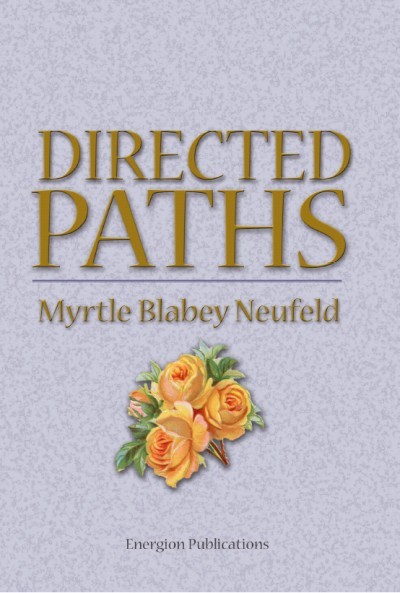The Fear of Being Wrong
If you do anything at all you’re going to be wrong at one time or another. You can be as careful as you want, and still sometime, somewhere, you’ll be wrong. Doubtless I’ll be wrong somewhere in this blog post. It could be a misspelling, a missed word, a badly chose word, or it might even be something more important. If I knew, I could avoid it. Maybe I shouldn’t even write it! Now there’s a thought!
[Update 11/23/07–note in the preceding paragraph the phrase “badly chose word” for “badly chosen word.” I noticed that one while I was checking through comments. I knew it! Failure!]
I’ve encountered this recently in questions of who should preach or teach in church. Someone might teach something wrong, and then what will we do? We will have been responsible for misinforming people. Not only that, but when we do this in church, their eternal souls might be in jeopardy! Eek! We’d better be very, very careful. Let’s use only curriculum approved by our denomination, and teachers certified for their theological correctness–whatever our version of that happens to be. Then we’ll surely be safe.
Well, no, not really! Human beings are imperfect. I’m imperfect. You’re imperfect. Somebody’s going to make a mistake. Somebody’s going to misunderstand. It doesn’t matter just how, but folks will inevitably get misinformed. I have personally been amazed at reports of things I’ve said in various classes. Without a tape recorder, I can’t be sure whether I’ve misspoken, or whether what I said has just been twisted hopelessly out of shape through repetition.
Over the last few days there has been a similar drama (albeit a minor one) unfolding in the blogosphere. Peter Kirk has been reporting on it. Adrian Warnock has now cut off comments on his blog. I’ll admit that I didn’t follow Peter’s request not to read Adrian’s blog, at least long enough to read Adrian’s rationale. He’s been spending time agonizing over blog comments. That’s fear of being wrong, even a fear of letting someone else be wrong in your corner of the blogosphere!
That sort of fear can be paralyzing and mind-closing. In the church we have used the accusation of heresy to increase the fear of being wrong, or more precisely to increase the fear of going against the community. Recently, when we held a panel discussion on reasons people do not study the Bible for themselves, one of our speakers mentioned the fear of getting it wrong. The audience response was 100% positive. A number commented that they had just that fear. Why take the risk of being wrong? Just go to the experts!
The problem with that, of course, is that the experts don’t agree, and so you still have the strong possibility of being wrong. In science, researchers have to learn to overcome a fear of being wrong, because they will doubtless be wrong many times. They can hope that they catch their own errors, but they’re going to have to be willing to play with hypotheses and test them, finding out that your hunch is wrong is often as valuable as finding out it’s right. In religion, it’s a bit harder, because the bounds of right and wrong are not so well established.
The answer, I believe, is to simply realize that we’ll all be wrong. We don’t have to be horribly embarrassed by it. We can simply acknowledge that we were wrong and make the correction. The only thing to truly be ashamed of is if we refuse to acknowledge and correct errors. That’s the further problem with the fear of being wrong–the fear of being known to be wrong. But if you think you’re perfect, I’m willing to bet you’re the only one who thinks you are. Everyone else already knows you can make mistakes. Go ahead and admit it.
One recent error that has really stuck with me is the position I took initially on the Duke rape case involving Lacrosse players. I immediately jumped to the “spoiled rich kids beat up on poor innocent woman” stereotype. I was glad that the prosecutor was going after them. Imagine my chagrin when I found that things were not nearly so clear, and then that the evidence against the young men was nearly non-existent. Embarrassing? Yes, but it’s part of learning. Hopefully if you’re a person who jumps to conclusions, you’ll be willing to learn a lesson from my experience–it doesn’t hurt to reserve judgment. I should note, however, that I’m more commonly accused of the opposite fault, of refusing to take a stand until the evidence is stacked high on all sides.
But don’t be afraid of speaking, of engaging in dialogue, and of questioning just because you might be wrong. In blogging, don’t be afraid to post, just because someone might catch your errors. And other than comments that are illegal, in what way do questionable comments do you harm? Having been wrong pretty frequently in half a century of life, I am still doing OK, still enjoying life, and there are still people who listen to me teach and read what I write.
Being wrong isn’t all that bad, unless you’re afraid of it.


Thanks. I did allow my readers to read Adrian’s rationale! Your take on this is helpful, fear is indeed a big factor. As for me, John Hobbins has called me “fearless”, and indeed I don’t see any need to fear anyone in the blogosphere.
Note my comment on your blog, which was where I thought it appropriate to post my response, since I very much do approve of your comment policy.
James Alison, The Joy of Being Wrong, The Crossroad Publishing Company, New York, 1998, p. 125
Henry:
Thanks for the great post! It is something that all of us need to reflect upon as we make our way through the blogosphere.